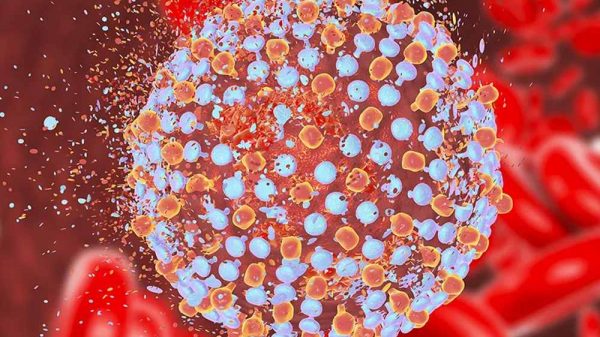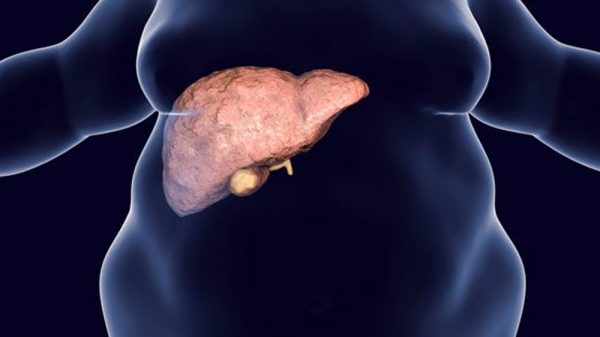Are you experiencing the symptoms of ascites? This is a fluid buildup in the abdomen that can be a complication of liver cirrhosis. It’s important to know the symptoms including what do ascites feel like. Water usually makes up about two-thirds of a person’s body weight. However, that figure is higher when a person has ascites so it’s critical to track the figure so you can determine if you have signs of the condition. There are various causes of ascites, although the most common ones are liver cirrhosis, heart disease, and cancer. There are other possible causes including kidney disease and tuberculosis.
It’s important to know the signs of ascites, which can vary. They include feeling tired, bloated, and constipated. These are common symptoms of other conditions so you should have your doctor check out your condition if you think you might have signs of ascites. He/She can figure out whether or not that’s the case so you can get the necessary treatment if required. The key is to know the different signs of the condition and the possible causes. As always the treatments should be based on the root cause of the ascites. Besides treating the fluid buildup there might be other conditions to deal with.
What Exactly Is Ascites?
Ascites involves fluid buildup in the abdomen that’s over 25 milliliters. The situation typically happens then the liver stop functioning properly. If the liver is malfunctioning then the fluid fills up the area between the organs and abdominal lining.
This is a very serious condition. The survival rate within two years is 50%. So if you think you have the symptoms of ascites it’s critical to speak with your physician as quickly as possible about the matter. The reason is your symptoms could be related to more serious issues.
There are various causes of ascites. The most common one is liver cirrhosis. Severe tissue scarring results in high blood pressure in the liver vein. That causes fluid to enter the abdominal cavity.
There are various risk factors related to cirrhosis. Liver damage is the main one. There are various causes of the damage including:
- Hepatitis B/C
- Over-active thyroid
- Cirrhosis
- Tuberculosis
- Heart/kidney failure
- Pancreatitis
- Cancer (some types)
- Heavy alcohol drinking
As with other conditions, it’s important to contact your doctor if the symptoms become worse. It usually happens slowly and results from fluid buildup. The various symptoms don’t always show that there’s an emergency. However, it’s better to be on the safe side.
There are various steps taken in order to diagnose ascites. The doctor will physically check the abdomen’s swelling. There are other testing methods that might be conducted to check for abdominal fluid. Some other tests include imaging and blood tests.
There are also various types of treatments for ascites. They’re based on whatever is causing the condition. They include water pills, fluid extraction, and surgery. Your doctor can pick the best treatment based on your particular situation.
There are also various complications your doctor will check for. It’s another critical part of diagnosis to determine whether you’re experiencing complications of the serious condition.
What Does Ascites Feel Like?
There’s often a lot of discomforts related to ascites. People who experience it might have various kinds of symptoms including:
- Bloating/sense of fullness
- Sense of heaviness
- Fatigue
- Indigestion
- Loss of appetite
- Ankle swelling
- Shortness of breath
- Hemorrhoids
- Abdominal swelling
- Changes to belly button
- Weight gain
- Nausea/vomiting
Having one of these symptoms doesn’t mean you have ascites. However, if you experience multiple symptoms then you should contact your doctor. He/She can do an exam and order tests to determine whether or not you have the condition.
Diagnosis
- Ultrasound: Sound waves are used to make a picture of the body’s interior
- X-Ray: The test takes a picture of the body’s interior
- Pancreatitis: This process involves removing fluid from the patient’s abdomen using a needle. The process is used to discover what’s causing the ascites.
- CT-Scan: This uses X-rays to take a 3D picture of the body’s interior
After being diagnosed with ascites it’s then critical to receive treatment. This is especially true when it’s related to serious conditions like liver/kidney/heart disease and cancer. In such situations, the main disease can also cause various symptoms and health complications.
Treatment
The primary goal of ascites is to treat the symptoms and reduce the patient’s discomfort. In some situations, the condition doesn’t cause discomfort. It’s important to note that the treatment itself might cause unwanted side-effects so you should be aware of them.
It’s critical to talk to your doctor about the best options before you pick a particular treatment plan. There are other steps you can take to deal with the ascites including:
- Shunt (device)
- Drinking fewer liquids
- Chemotherapy
- Eating less salt
- Fluid extraction using a needle
- Taking water pills
It’s important to talk to your doctor about the best treatment for your condition. This should be abed on the main cause of your symptoms.
Natural Ways to Reduce Fluid Buildup
More Potassium
This mineral provides various key functions. For example, it helps to send electrical signals so the body functions better. The mineral can also improve heart health. Some studies show that potassium lower water retention in multiple ways. It’s done by boosting urine production and lowering sodium levels.
There are various high-potassium foods including tomatoes, avocados, and bananas. If you want to treat fluid buildup then it’s a good way to do that and lower your abdominal fluid.
More Magnesium
This is a critical mineral that’s involved in 300+ enzyme reactions to keep the body functioning properly. Boosting magnesium intake might help lower water retention. So if you want to avoid/treat ascites it’s a natural remedy that’s worth considering.
Various studies show that taking magnesium daily seems to lower water retention. There are various natural sources of magnesium including whole grains, nuts, leafy greens, and dark chocolate. You can also take a magnesium supplement to increase your intake of the mineral.
Vitamin B6
This is a group of many vitamins that are related. They’re critical for forming red blood cells and also are critical for various other body functions. Studies show that Vitamin B6 can lower water retention. There are various foods to pick including meat, potatoes, walnuts, and bananas. There are also supplements for Vitamin 6 at drugstores and health stores.
Low-Salt Diet
This is one of the most important steps to take when dealing with fluid buildup in the abdomen. When sodium combines with water it helps maintain a balance of fluids inside/outside of human cells. However, if you consume a high-sodium diet this can cause the body to retain water. Such foods are the main source of dietary sodium.
A simple solution is to reduce your salt intake. However, there are mixed results about studies related to this remedy after learning what do ascites feel like.























